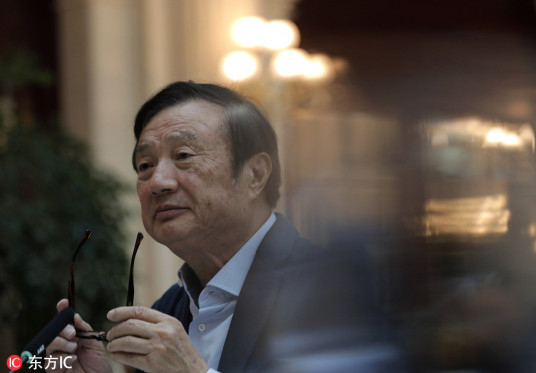Huawei's foresight and insight key to its international success


Ren Zhengfei, founder and chairman of Huawei, had an interview with the Chinese media in Shenzhen, where the company is headquartered, on Tuesday. Ren said the United States has underestimated Huawei's strength and resilience, and the company had prepared for a confrontation with the US for a long time. The 21st Century Business Herald comments:
Another key point Ren made is that Huawei is a global venture whose leading status in the 5G industry is based on its long-term use of global resources and talents. Proud of the research and development network Huawei has built worldwide, Ren has attributed the company's business success to the inherent rationality of globalization.
Ren's interview has found many keen listeners among Chinese entrepreneurs, and some have commented approvingly on social media that Huawei's experience has let them realize how a company should open up today.
That the Chinese government is striving to improve the domestic business environment and welcome more foreign companies is not merely to boost economic growth, but also to promote market competition, which will naturally force some companies out of their comfort zone to explore the possibility of joining the global competition.
Only by introducing higher levels of competition through opening-up will local companies be forced to increase efficiency and invest in innovation.
After more than 40 years of reform and opening-up, more Chinese enterprises have accumulated sufficient experience and capital to step over the threshold of foreign markets. The success of Huawei speaks volumes of the high return from an effective allocation of global research and development resources.
In the globalized age, enterprises that aspire to become leading players in their respective sectors cannot afford to ignore foreign talents and markets. The better a company is internationalized and localized overseas, the higher it reaches in the global value chain. Huawei has a large number of research bases, sales companies and localized management teams in major regions of the world.
However, that puts higher requirements on the companies' management. As the success of Huawei indicates, they have to improve the efficiency of their operation, and demonstrate more foresight in industrial development and more insight in addressing the cultural and institutional differences in foreign countries.
































